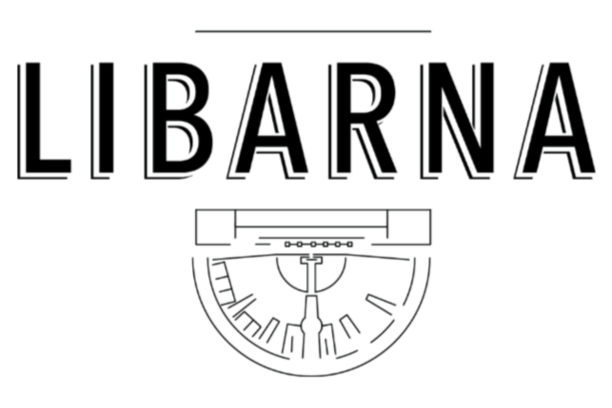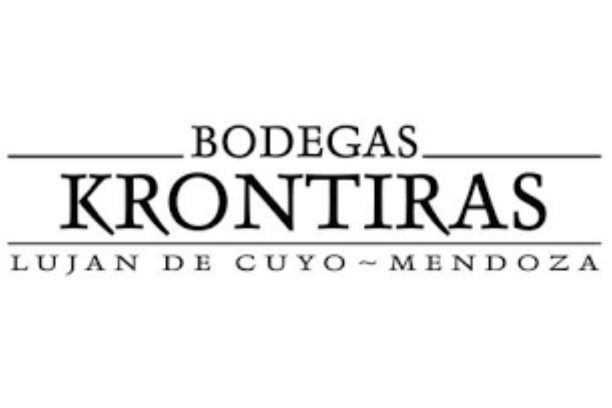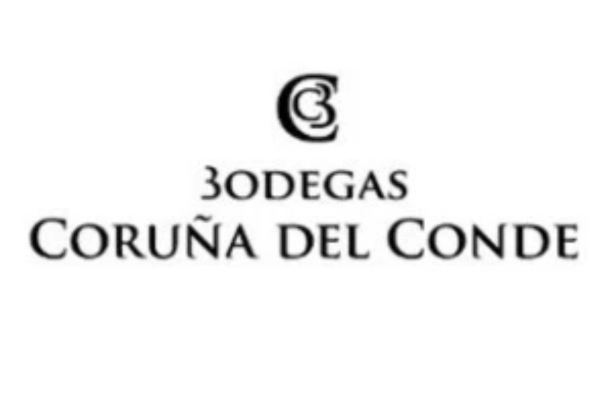
About UsAt the heart of our community lies a steadfast dedication to authenticity. We believe in the power of transparency, striving to provide consumers with a clear understanding of what makes natural wines truly natural. Through collaborative efforts and a unified voice, we work diligently to uphold the values and principles of authentic natural wine production.
Who We Are

































Member Perspectives


















Program Directors
-

Josh Jacobson
EXECUTIVE DIRECTOR
Managing the holistic functioning of the organization, encompassing strategy formulation, fundraising and program administration
-

Ronda Fraley, DipWSET
PROGRAM DIRECTOR
Responsible for overseeing the certification process, ensuring compliance and continuously improving program effectiveness
-

Ashleigh Ostin, DipWSET
MEMBERSHIP ENGAGEMENT DIRECTOR
Responsible for onboarding and driving member engagement through active participation in the organization's activities and initiatives
-

Bill Decker
MARKETING DIRECTOR
Oversees the marketing and branding efforts to promote natural wine producers and the organization’s overall mission
The Council of GEMS
In our ongoing effort to fine-tune the definition of natural wine, the Natural Wine Authority has taken the initiative to establish the Council of GEMS (Growers, Experts, Makers, and Sommeliers). This esteemed group of members brings together accomplished natural winemakers and experts from diverse corners of the globe. Working collaboratively, we engage in a continuous process of evaluating and voting on the criteria that underpin the natural wine classification.
The collective knowledge, honed through years of practical experience, fuels the evolution of the International Standard. This ensures that it remains not just relevant but also responsive to the ever-changing landscape of authentic natural winemaking. Beyond this, our collaborative efforts extend to organizing award ceremonies and events that serve as vibrant platforms for knowledge sharing, recognition for excellence and the exchange of ideas among our members. These events foster a sense of unity and a shared commitment to promoting the essence of genuine natural wines, as reflected in our continually updated and refined Natural Wine Score.
Furthermore, as part of our commitment to a collaborative approach, each member of the Council of GEMS is provided with the opportunity to actively participate in the various committees of the Natural Wine Authority.
Council Committees
-
The Natural Wine Awards Committee (NWAC) is responsible for overseeing and managing upcoming natural wine awards conferences. Their primary functions include:
Category and Criteria Determination: Defining the awards categories and criteria for evaluating natural wines, ensuring a comprehensive and fair assessment process.
Judge Selection: Identifying and inviting qualified judges from the wine industry, promoting diversity and impartiality.
Submission Guidelines: Establishing clear guidelines for wineries and producers to submit their wines, including eligibility criteria, documentation requirements, and deadlines.
Sample Handling: Ensuring proper handling, storage, and transportation of wine samples to maintain their integrity.
Blind Tasting Protocol: Implementing a blind tasting process to maintain objectivity among judges, safeguarding the anonymity of the wines.
Scoring System: Developing a standardized scoring system for judges to evaluate wines consistently based on predetermined criteria.
Conflict Resolution: Creating procedures to address disputes or conflicts during the judging process impartially.
Winner Selection: Tabulating judges' scores to determine finalists and winners in each category while maintaining transparency.
Awards Ceremony Coordination: Planning and executing the awards ceremony, including venue selection, guest speakers, and award presentations.
Communication and Promotion: Promoting the event through marketing strategies, press releases and social media to attract participants and generate awareness.
Post-Event Evaluation: Gathering feedback to assess the event's success and identify areas for improvement.
Long-Term Planning: Developing a long-term strategy for the annual awards conferences, considering growth, sustainability, and its impact on the natural wine industry.
Overall, the NWAC plays a vital role in ensuring the credibility, transparency, and success of the awards event, while upholding the values and principles of natural winemaking within the community.
-
The primary role of the Natural Wine Certification Committee (NWCC) is to rigorously assess wines, ensuring they align with natural winemaking principles such as organic practices, spontaneous fermentation, and minimal intervention. These assessments serve as the basis for consumer-friendly certification, signifying a wine's natural qualities.
Comprising 5 to 7 members, each serving a 3-year term, the NWCC also upholds confidentiality agreements, discloses conflicts of interest, and maintains impartiality during the certification process. They make decisions through majority consensus in various formats, including in-person meetings, online platforms, or telephone discussions.
Additionally, the NWCC manages the selection and oversight of independent third-party inspectors, who play a vital role in conducting assessments. In essence, their central responsibilities encompass overseeing certification programs, evaluating inspector findings, addressing applicant appeals, and granting approval for accredited inspectors to conduct assessments.
To maintain impartiality and prevent conflicts of interest, no growers or makers within the Council of GEMS can serve on the NWCC, ensuring fairness and integrity in the certification process.
The NWCC's ultimate goal is to ensure fairness and integrity in the certification process while continuously refining the criteria of the Natural Wine Score.
-
The Education Committee takes on the critical responsibility of organizing and overseeing all the online coursework offered through the Natural Wine Authority. This committee is composed of dedicated individuals with a deep passion for education and a thorough understanding of natural winemaking principles.
Their committee’s role encompasses several key aspects:
Curriculum Development: The committee collaborates to design the course content, ensuring it is comprehensive, informative, and aligned with the latest developments in the field of natural winemaking. They are subject matter experts tasked with creating engaging and relevant educational materials.
Course Structure: They establish the structure of each course, including the duration, topics covered, and the order in which they are presented. This ensures a logical and progressive learning experience for participants.
Instructor Selection: The Education Committee is responsible for identifying and selecting qualified instructors, including sommeliers, vintners, and natural winemaking experts from both within and outside the Council of GEMS. They assess potential instructors based on their expertise, teaching abilities, and commitment to the course objectives.
Teaching Methodologies: The committee decides on the most effective teaching methodologies, which may include video lectures, live webinars, written resources, and interactive discussions. They aim to create a diverse and engaging learning environment.
Course Logistics: They manage the logistical aspects of course delivery, including scheduling, technical requirements, and platform selection. This ensures that participants have a seamless and user-friendly experience.
Quality Assurance: The Education Committee maintains a commitment to excellence by continuously reviewing and updating course materials to reflect the latest industry standards and best practices. They also collect feedback from participants to make necessary improvements.
Participant Support: Throughout the courses, the committee remains accessible to participants, offering support, answering questions, and facilitating discussions to enhance the overall learning experience.
By meticulously overseeing these aspects, the Education Committee plays a crucial role in ensuring that our online coursework is well-organized, educational, and aligned with our mission of promoting authentic and sustainable wines.
-
The Events and Planning Committee plays a pivotal role in coordinating and executing various events, including our annual awards conference and natural wine events. Their responsibilities extend beyond mere logistical planning; they are integral to fostering a sense of community and facilitating the exchange of knowledge among our members.
Event Coordination: The committee takes charge of all aspects of event planning, from selecting suitable venues to managing schedules and coordinating resources. They ensure that each event is organized seamlessly, creating a positive and welcoming atmosphere for attendees.
Content Curation: To enrich the events, the committee collaborates with both, natural winemakers and educators to curate relevant and engaging content. This content may include keynote speakers, panel discussions, workshops, and tastings, all aimed at enhancing participants' understanding of natural wine.
Knowledge Exchange: One of the committee's primary objectives is to facilitate the exchange of knowledge and ideas among attendees. They create opportunities for networking, discussions, and interactions that allow members to learn from each other and share their insights.
Community Building: The committee places a strong emphasis on building a sense of community within the Natural Wine Authority. They organize social events, gatherings, and forums that encourage members to connect, collaborate, and forge meaningful relationships within local natural wine communities around the world.
Education Integration: Recognizing the importance of education in our mission, the committee ensures that events align with our educational goals. They incorporate educational sessions or workshops into conferences and fairs, providing opportunities for members to deepen their understanding of natural winemaking practices.
Feedback and Improvement: Following each event, the committee collects feedback from participants to gauge satisfaction and gather insights for improvement. This feedback-driven approach allows them to continually enhance the quality and relevance of future events.
Promotion and Outreach: The committee plays a crucial role in promoting events to a wider audience, including members and the general public. Their outreach efforts contribute to the success of the events and the broader mission of the Natural Wine Authority
The Events and Planning Committee is instrumental in creating dynamic and enriching experiences for members of the Natural Wine Authority. By orchestrating conferences and natural wine fairs, they not only provide a platform for knowledge dissemination but also foster a vibrant and supportive community dedicated to the principles of authentic and sustainable winemaking.
-
The Natural Wine Score Committee within the Council of GEMS is entrusted with a crucial mission—to uphold the integrity and relevance of our collective definition of what constitutes a genuinely natural wine. This committee plays a pivotal role in ensuring that the Natural Wine Score remains a dynamic and accurate benchmark for evaluating and certifying natural wines.
Here's an in-depth look at their responsibilities and contributions:
Definition Maintenance: The committee diligently maintains and updates the criteria that comprise the Natural Wine Score. These criteria encompass various aspects of natural winemaking, including organic practices, spontaneous fermentation, minimal SO2, and more. They continuously review and refine these criteria to reflect the evolving landscape of authentic winemaking practices.
Feedback Integration: Feedback is invaluable for assessing and improving the Natural Wine Score. The committee actively solicits input from all Council of GEMS members, who bring a wealth of knowledge and practical experience in natural winemaking. This inclusive approach ensures that the score remains reflective of current industry standards and best practices.
Criteria Evolution: Natural winemaking is an evolving field, and the committee is responsible for staying abreast of emerging trends, techniques, and philosophies within the industry. They assess how these developments align with the core principles of natural winemaking and, when appropriate, incorporate them into the Natural Wine Score.
Transparency and Consistency: The committee maintains transparency in its decision-making processes and strives for consistency in applying the Natural Wine Score criteria. They ensure that the evaluation process is fair and equitable, respecting the diverse approaches to natural winemaking while upholding the fundamental principles of authenticity.
Educational Resources: To support the education of members and the wider community, the committee may develop educational resources that explain the Natural Wine Score and its criteria. These resources serve as valuable tools for understanding the philosophy behind natural wine certification.
Quality Assurance: In addition to incorporating feedback, the committee periodically conducts quality assurance assessments to verify the ongoing relevance and accuracy of the Natural Wine Score. This process includes rigorous internal evaluation and, when necessary, consultation with external experts.
Communication: The committee plays a crucial role in communicating updates and refinements to the Natural Wine Score to all stakeholders, including members, natural winemakers, and the public. Clear and transparent communication is essential for maintaining trust and confidence in the score.
In essence, the Natural Wine Score Committee is dedicated to the ongoing improvement and precision of our collective definition of natural wine. Through their commitment to openness and continuous learning, they ensure that the Natural Wine Score remains a dynamic and trusted standard in the realm of authentic and sustainable winemaking.
